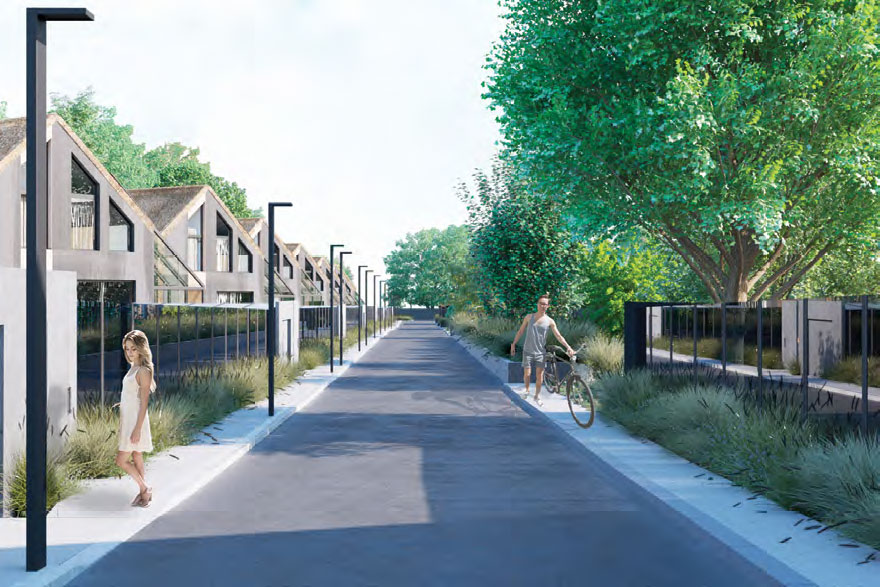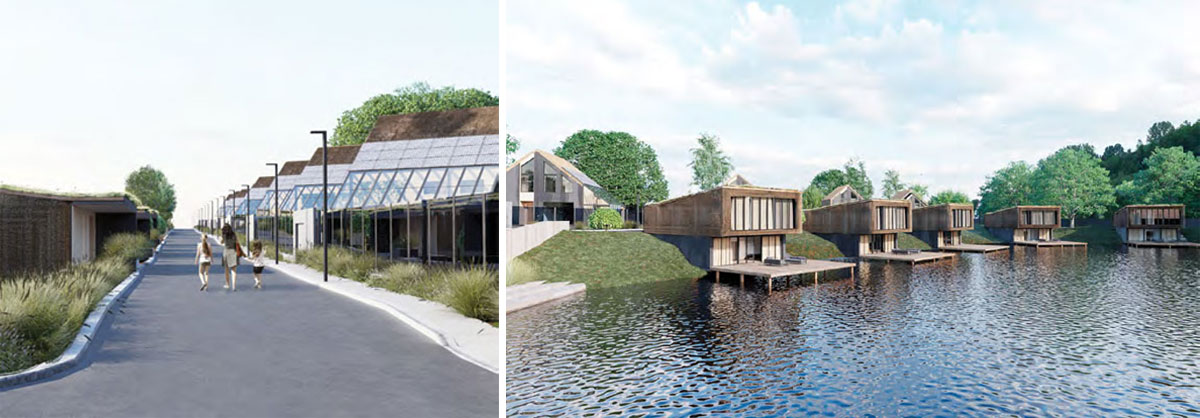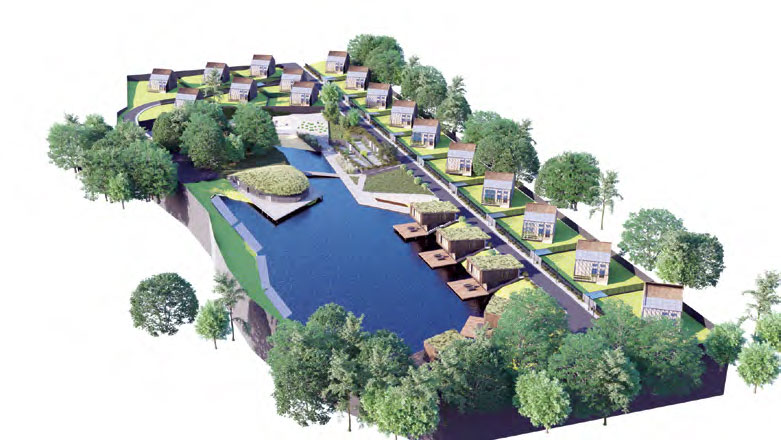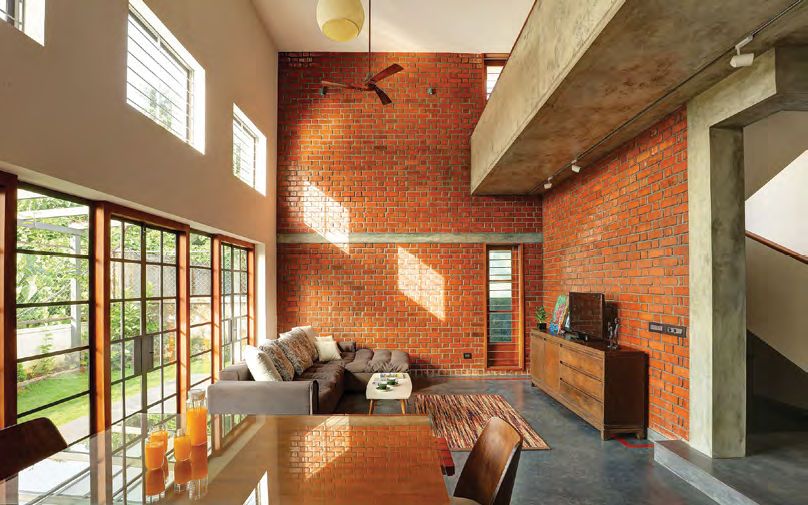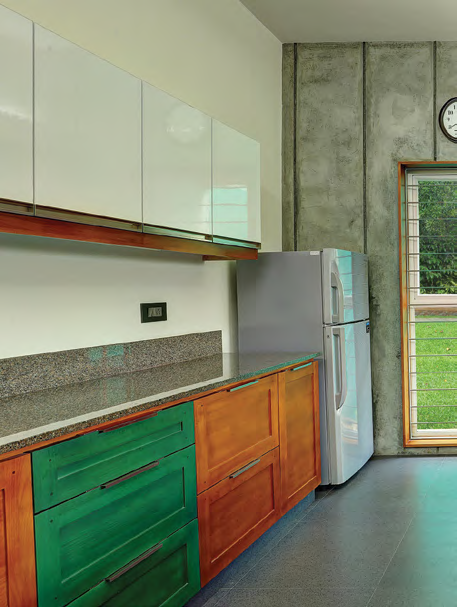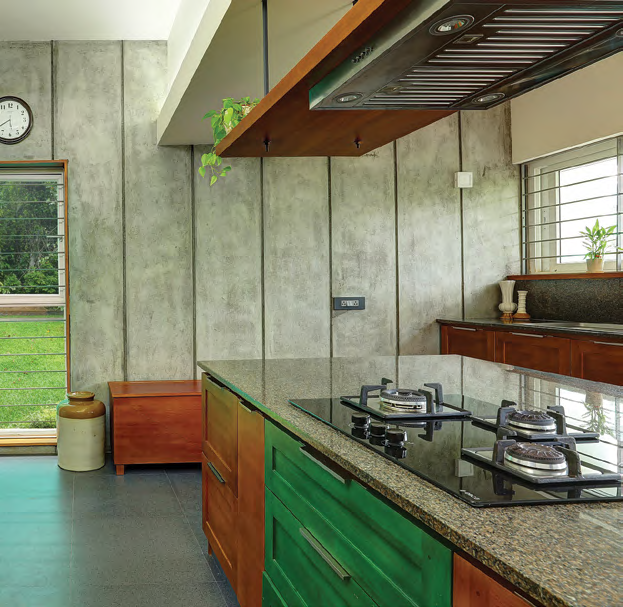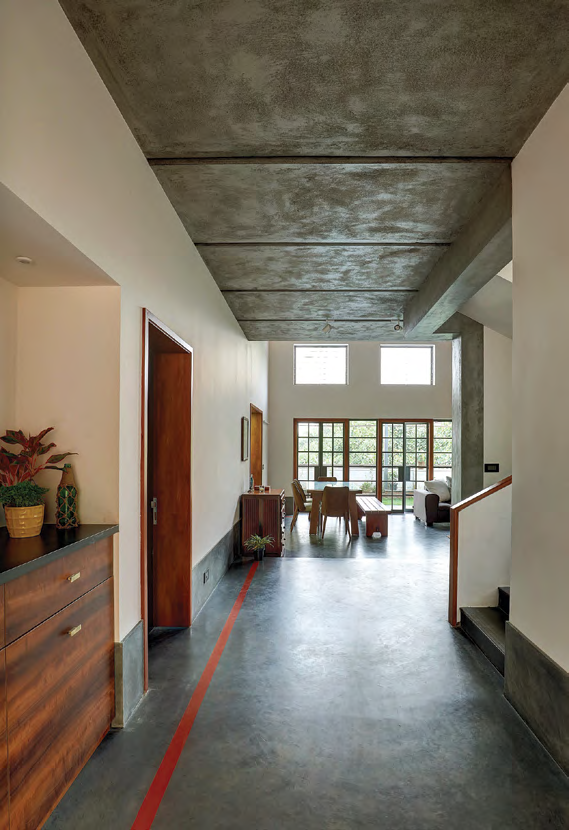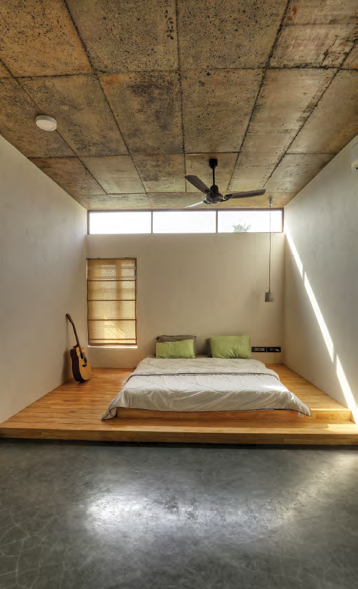The post 5 Sustainable Interior Design Trends to Embrace in 2024 appeared first on FWD Life | The Premium Lifestyle Magazine |.
]]>Upcycled Furniture:
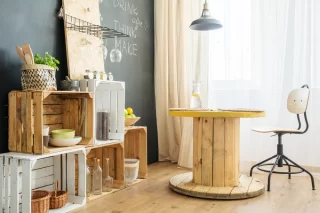
One of the most prominent sustainable interior design trends of 2024 is the use of upcycled furniture. Instead of buying new pieces, consider giving old furniture a new lease on life by refurbishing or repurposing them. From reclaimed wood tables to refurbished chairs, upcycled furniture adds character and charm to your space while reducing waste and conserving resources.
Biophilic Design:
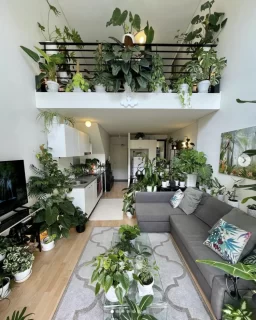
Biophilic design, which emphasizes a connection to nature, continues to gain popularity in 2024. Integrating natural elements such as plants, natural light, and organic materials into your interior design not only enhances aesthetics but also promotes well-being and sustainability. Consider incorporating living walls, indoor gardens, and sustainable wood finishes to bring the outdoors inside and create a healthier living environment.
Energy-Efficient Lighting:
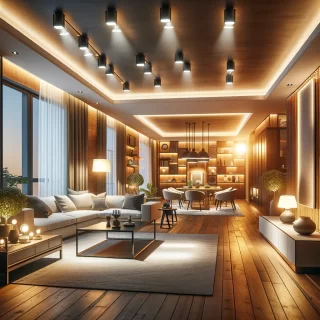
With a growing focus on energy conservation, energy-efficient lighting solutions are becoming a staple in sustainable interior design. LED lights, in particular, consume significantly less energy than traditional incandescent bulbs and last much longer, reducing both energy consumption and maintenance costs. Additionally, consider incorporating natural light sources such as skylights and large windows to maximize daylight and minimize the need for artificial lighting during the day.
Sustainable Textiles:
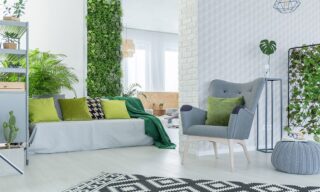
When it comes to upholstery and soft furnishings, opting for sustainable textiles is key to reducing environmental impact. Look for fabrics made from organic or recycled materials, such as organic cotton, hemp, bamboo, or recycled polyester. These materials not only reduce the use of harmful chemicals and pesticides but also minimize waste and support eco-friendly production practices. Additionally, consider investing in durable, high-quality textiles that stand the test of time, reducing the need for frequent replacements.
Smart Home Technology:

In 2024, smart home technology continues to evolve, offering innovative solutions for sustainable living. From smart thermostats that optimize energy usage to home automation systems that control lighting and appliances, these technologies can help reduce energy consumption and increase efficiency in your home. Additionally, smart home devices such as occupancy sensors and smart meters provide valuable insights into your energy usage, empowering you to make informed decisions about resource management and conservation.
As we strive to create more sustainable living environments, embracing these five interior design trends can help reduce our environmental impact while creating beautiful and functional spaces. Whether you’re upcycling old furniture, incorporating natural elements, or investing in energy-efficient technologies, every sustainable choice contributes to a greener future for generations to come. So let’s embrace these trends and make sustainability a cornerstone of our interior design practices in 2024 and beyond.
The post 5 Sustainable Interior Design Trends to Embrace in 2024 appeared first on FWD Life | The Premium Lifestyle Magazine |.
]]>The post Designing a Functional Home Office: Tips for Productivity and Comfort appeared first on FWD Life | The Premium Lifestyle Magazine |.
]]>Choose the Right Location
Select a quiet and well-lit area in your home that is conducive to work. Ideally, this space should be away from distractions like heavy foot traffic or noise from common areas.
Invest in Ergonomic Furniture
Your office chair and desk are vital components of your workspace. Invest in ergonomic furniture that promotes good posture and reduces the risk of discomfort or injury during long hours of work.
Prioritize Natural Light
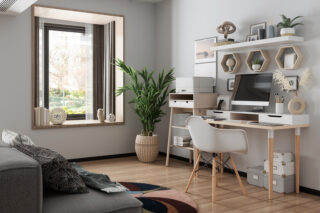
Position your desk near a window to take advantage of natural light. Natural light not only enhances mood and energy levels but also reduces eye strain and fatigue.
Declutter Regularly
Keep your workspace clutter-free by organizing cables, files, and supplies. A clean and organized environment fosters clarity of mind and helps minimize distractions.
Personalize Your Space
Incorporate elements that inspire and motivate you, such as artwork, plants, or motivational quotes. Personalizing your space can boost creativity and make your home office feel more inviting.
Optimize Technology Setup
Ensure that your technology setup including your computer, monitor, keyboard, and mouse is optimized for efficiency and comfort. Consider investing in accessories like an adjustable monitor stand or a wireless keyboard and mouse for added flexibility.
Incorporate Greenery
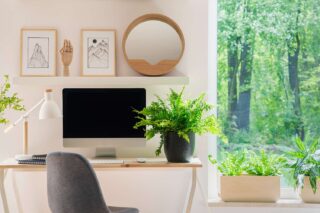
Introduce plants into your home office to improve air quality and add a touch of nature to your space. Plants not only enhance aesthetics but also have been shown to reduce stress and increase productivity.
Create a Distraction-Free Zone
Minimize distractions by setting boundaries with family members or roommates and establishing specific work hours. Consider using noise-canceling headphones or a white noise machine to block out unwanted sounds.
By implementing these tips, you can design a home office that promotes productivity, creativity, and overall well-being. Remember that every individual’s needs and preferences are unique, so feel free to experiment and adjust your workspace to suit your specific requirements. With a well-designed home office, you’ll be better equipped to tackle your tasks with focus, efficiency, and comfort.
The post Designing a Functional Home Office: Tips for Productivity and Comfort appeared first on FWD Life | The Premium Lifestyle Magazine |.
]]>The post A Guide to Choosing the Perfect Colors for Your Home Interior appeared first on FWD Life | The Premium Lifestyle Magazine |.
]]>Consider the Mood You Want to Create:
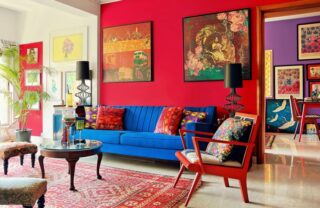
The first step in choosing the right colors for your home interior is to consider the mood or atmosphere you want to evoke in each room. Do you prefer a calming and serene space, or are you looking for something more vibrant and energizing? Think about how you want to feel when you’re in each room and choose colors that align with those emotions.
Take Lighting into Account:
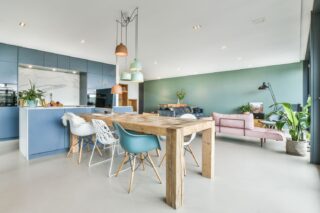
Lighting plays a crucial role in how colors appear in a room. Natural light can enhance certain hues while making others appear dull. Consider the direction and intensity of natural light in each room when choosing paint colors. Rooms with ample natural light can handle bold and vibrant colors, while those with less light may benefit from softer, lighter shades.
Create a Cohesive Color Scheme:

To ensure a cohesive flow throughout your home, choose a consistent color scheme that ties all the rooms together. You can achieve this by selecting a few key colors and using them in different combinations throughout the house. Neutral colors like whites, grays, and beiges make excellent base tones, while accent colors can add pops of personality and interest.
Explore Color Psychology:
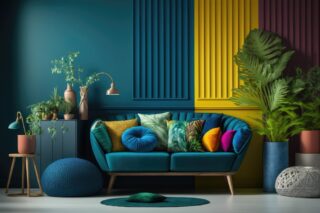
Color psychology can help you understand how different colors can affect mood and behavior. For example, blue is often associated with calmness and tranquility, making it an excellent choice for bedrooms and bathrooms. Yellow, on the other hand, can evoke feelings of happiness and energy, making it ideal for kitchens and living areas. Consider the psychological effects of each color when making your choices.
Test Paint Samples:
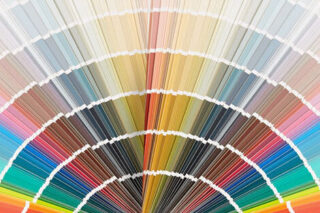
Before committing to a color for your walls, it’s essential to test paint samples in the actual space. Paint a small section of the wall with your chosen colors and observe how they look throughout the day in different lighting conditions. This will help you make an informed decision and ensure that you’re happy with the final result.
Don’t Forget About Accents and Accessories:
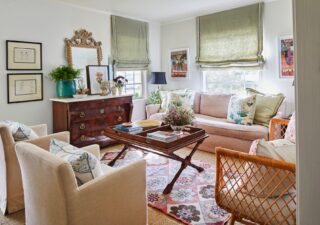
In addition to wall colors, consider how accent pieces and accessories can complement your chosen color scheme. Throw pillows, rugs, curtains, artwork, and furniture upholstery can all add depth and dimension to your space while tying the room together visually.
Choosing the right colors for your home interior is a personal and creative process that can transform your living space into a place you love to call home. By considering the mood you want to create, taking lighting into account, creating a cohesive color scheme, exploring color psychology, testing paint samples, and incorporating accents and accessories, you can design a home that reflects your unique style and personality. So, let your creativity flow, and enjoy the process of bringing your vision to life!
The post A Guide to Choosing the Perfect Colors for Your Home Interior appeared first on FWD Life | The Premium Lifestyle Magazine |.
]]>The post HEALTH BENEFITS OF INDOOR PLANTS appeared first on FWD Life | The Premium Lifestyle Magazine |.
]]>Refreshes the air
Indoor plants help in providing fresh air inside rooms. These plants help to clean the air we breathe by eliminating harmful toxins. The toxins include benzene, formaldehyde, carbon monoxide and xylene. All of these are common volatile organic compounds. They are being emitted into the air by items such as furniture, carpets and common household appliances.
So indoor plants are as important as any other component in the house.
Improves breathing air quality
As we know, plants absorb the carbon dioxide we emit and provide oxygen in return. But at night, they are likely to emit carbon dioxide. This is where indoor plants like Snake plant (Mother in law’s tongue) becomes exceptional. It is one of only a few plants that release oxygen into the air at night. This makes it the perfect plant to have in our bedrooms as we sleep. Because of this, your sleep becomes peaceful. It is a low maintenance plant too.
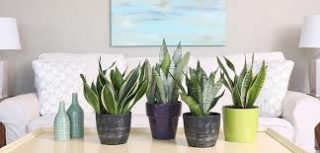
Snake plant (Mother in law’s tongue)
Acts as natural humidifiers
About 10% of the moisture in the air we breathe is released by plants. The best example of this is the Areca palm (Butterfly or golden cane palm). This is a very popular household plant. It releases moisture into the rooms, making it particularly welcome in dry winter months. On the other hand, plants such as cacti and succulents retain water and therefore release very little water into the air.
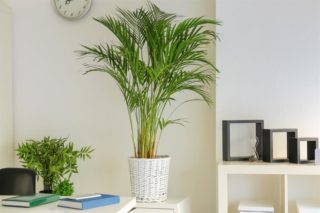
Golden cane palm
Improve mental health
It is a proven fact that the involvement of plants in the day to day life can elevate mood. Plants help to increase our levels of positivity and make us feel relaxed. They can also help with loneliness and depression.
Improves productivity
Plants in our workplace have a positive effect on the occupants. Especially in helping them to reduce stress and fatigue. This eventually helps in enhancing productivity. Having plants beside or on the study desk and workspace will help induce concentration.
The post HEALTH BENEFITS OF INDOOR PLANTS appeared first on FWD Life | The Premium Lifestyle Magazine |.
]]>The post FWD’s insights on the eco-friendly Ethno Village appeared first on FWD Life | The Premium Lifestyle Magazine |.
]]>Words by Katherine Vynnytska Photographs from Yakusha Design Studio
Yakusha Design Studio presents a unique project: the first ecofriendly stand-alone cottage town in Ukraine, entitled “Ethno Village”. The concept of ethnicity is very closely linked to environmental performance as traditional ethnic materials are always natural.
A Small Modern Utopia
The project includes 22 houses, 17 of which are with a greenhouse and 5 which are at the lake. On the property, there is everything required for comfortable living: a lake, walking area, beach, a playground, fishing grounds, guest parking and a restaurant serving healthy food. The square area of houses range from 150 to 200 square metres, depending on the layout and placement on the territory of the cottage town. “Ethno Village” follows 3 basic principles: sustainability, energy efficiency and ethnicity.
Eco-friendly and Economical
Ukraine is rich in such natural materials as clay, straw and reeds, so housing obtained from such materials is environmentally friendly and economical. While creating the eco-friendly housing “Ethno Village”, their task was to make it as comfortable as possible, and so, during the development of the project, we used 3 main methods: architectural and planning solutions, the use of innovative materials, and competent selection of equipment. That is why the locations of houses on site are protected from the wind by trees on the northern side, almost all the windows face south, and for summer time, there’s an effective sun shield put in place.
Efficiently Climate-Controlled
In addition to eco materials, the space is very well designed, and orientation and proportions of premises are carefully maintained. They have taken care that a greenhouse be made a part of the house, which helps to improve thermal efficiency and allows you to grow vegetables and follow the diet. YDS paid attention to the technical side and carefully thought out the ventilation and air recovery, and also the location of the heat pump and solar panels. This accommodation allows you to experience harmony with nature, since it is economical, environmentally friendly, aesthetically pleasing, has beneficial effects on the vital activity of people as it provides optimal air humidity, absorbs harmful substances, contains a large number of volatile production, maintains a comfortable temperature all year round and has a positive impact on the psychoemotional state of people.
The post FWD’s insights on the eco-friendly Ethno Village appeared first on FWD Life | The Premium Lifestyle Magazine |.
]]>The post A Home After Heart appeared first on FWD Life | The Premium Lifestyle Magazine |.
]]>Words by Likhitha P Nair Photographs from Nirvana Design Studio
Basically, a house is a structure with four walls and a roof above your head. It becomes a home only when it holds the heart and smiles of those who live in it. The home of architect Avinash Joshy and interior designer Steffy Thomas is simple, comfortable, yet personal. Their skill in designing and the depth of personal touch is what is special about this about this home situated in Kochi, Kerala. Walking in, you are immediately transported to a calm, serene living space close to nature. Entry to the house is from the west side through the foyer which has paintings by local artists placed against plain walls. The foyer opens up to double height living and dining area with a ceiling that is polished cement with horizontal grooves. This blends perfectly with the space and also the minimalist furniture. Each room feels extremely spacious. “We planned the house in a manner that there is privacy from the streets and also consists of views into the courtyard,” says Avinash.
Sunshine and Grey
Since the dining, living and kitchen areas always bring the family together, they have been aligned in a single line, with a lot of space for movement. The living area has metal French doors and fixed windows that opens out to a beautiful courtyard. The plants filter the harsh sun, while keeping the flow of energy and the lightness of a beautiful day intact. Sitting on the couch, you look up to see lights hanging from a double-height ceiling that visually connects to the floor above.
A century-old chest of drawers has been placed at the entrance of the living room as a prayer table. The modular kitchen has unfinished cement walls, giving it a rustic look. With little green bottles and bonsai plants on the fridge, green powder-stained wooden shutters and natural stone counter top, the kitchen looks almost like it’s been cut out of nature. What better place to plate your meals than here! The simple and minimalistic interiors of the house makes you feel comfortable immediately. The wall surfaces are a mix of eggshell paint, polished bricks and cement. The floors are of traditional gray oxide with inlaid brown oxide on the borders. Rugs made from coir define the spaces.
Of Simple Things
The upper bedroom on the east side has a room-wide narrow window above the bed which lets in the early sunshine. The room is naturally well lit through the day. It has a floor to ceiling bay window made in powderstained wooden frames letting in the cool western breeze. The ceiling is made in weathered concrete sheet with clear polish. The master bedroom also has a bed-side window seat with adjustable curtains. The room is Steffy’s favourite spot in the house. “The bedside window that opens outside has an extension where you can sit and read in the evenings. The room has a different mood in each corner and with the changing shade of light from the sun. You never really feel like you have been in one place all day,” she says. The bedroom has an open bathroom, with the wardrobe acting as a partition between the sleeping area and the washroom. A painting of the famous Thrissur pooram by regional artists has been placed in the wardrobe. The inner partitions of the bathroom are finished in black oxide and the wash counter is an old wooden study table, with a plant resting near a meditating Buddha statue.
The best part about this ‘contemporary but tropical’ home is its detailing. As architect Miles Van der Robe said, “less being more” fits the right description of this house.A wooden dining table which was built in-house, the sofa sourced from a local shop in town, a vintage grocery box and a ceramic ‘bharani’ in the kitchen, a small blue cycle on the TV stand and fresh indoor plants – adding all this up, it is evident that this home is where our heart is at.
The post A Home After Heart appeared first on FWD Life | The Premium Lifestyle Magazine |.
]]>